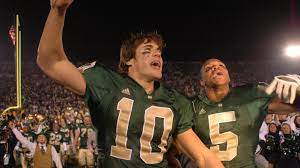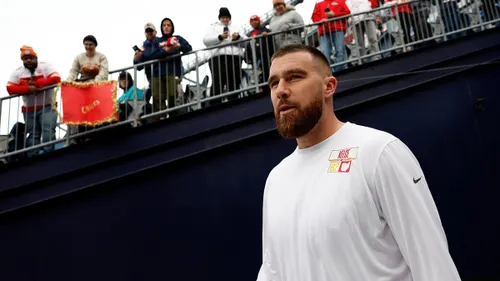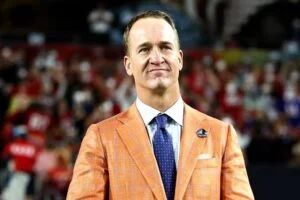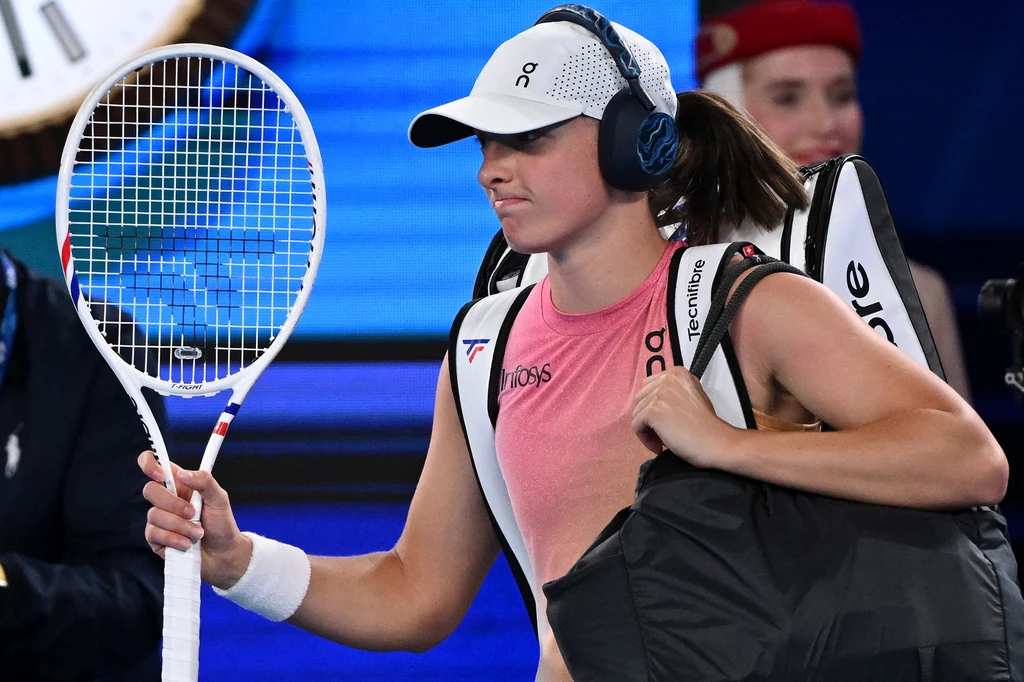Brady Quinn, the former Notre Dame quarterback and current college football analyst, is never shy about voicing his opinions—especially when it involves the USC Trojans. Recently, Quinn took aim at USC, accusing the program of fostering a “one-sided” problem that continues to plague its efforts to reestablish national dominance. His comments, sharp and unapologetic, reignited long-standing tensions between two of college football’s most iconic rivals. But beyond rivalry-fueled rhetoric, Quinn’s criticism laid bare serious concerns about how the Trojans approach the modern game—issues that could very well define their future trajectory.
Quinn’s core argument revolved around what he perceives as an unbalanced team structure that leans far too heavily on offense while neglecting the fundamentals of defense and physicality. In his view, USC has prioritized star-studded offensive talent and flashy schemes at the expense of building a team that can withstand the rigors of a full Power Five schedule, especially in the Big Ten starting in 2024. “You can’t win championships if you’re only trying to outscore people,” Quinn said bluntly during a recent broadcast. “At some point, you have to stop the other guy.”
His comments echoed a sentiment that many analysts and fans have voiced in recent seasons. While USC has no shortage of high-octane offensive firepower—highlighted by Heisman winner Caleb Williams, dynamic receivers, and top-tier quarterback recruits—the defense has often lagged behind. Under former defensive coordinator Alex Grinch, the Trojans frequently looked disorganized, soft against the run, and incapable of closing out games. Missed tackles, blown coverages, and lack of physical intensity were recurring themes, particularly in high-stakes matchups.
Quinn pointed to these deficiencies as evidence of a cultural problem within the program. “It’s one-sided,” he emphasized. “You can tell what they care about based on where they put their time and energy. Offense gets the headlines, offense gets the investment, and defense is an afterthought.” He argued that such an imbalance creates a fragile team identity—one that might dazzle in September but crumbles in November when the games are bigger and the teams tougher.
The former Irish quarterback also took aim at USC’s recruiting philosophy, suggesting that the Trojans have leaned too heavily on skill positions and transfer talent without sufficiently developing a strong core of homegrown, physical linemen. “They’ve got great athletes, no question. But football is still a game won in the trenches,” Quinn said. “USC isn’t recruiting or developing enough guys who want to do the dirty work up front. That’s where they fall behind schools like Georgia, Michigan, or even Notre Dame.”
These comments didn’t go unnoticed. USC fans and some West Coast pundits were quick to push back, accusing Quinn of harboring bias due to his Notre Dame roots. But his analysis wasn’t without merit. In key games over the past two seasons—losses to Utah, Oregon, Notre Dame, and Tulane—USC’s inability to control the line of scrimmage or execute sound defensive strategies was glaring. These were not isolated issues but part of a larger trend that undermined their playoff hopes.
Lincoln Riley, USC’s head coach, was hired to restore the Trojans to national prominence, and his offensive acumen is well-respected. But even Riley’s biggest supporters have begun to acknowledge that his teams have yet to strike the right balance between offense and defense. While Riley brought in former UCLA defensive line coach Eric Henderson to inject toughness and NFL-caliber training into the front seven, questions remain about whether the program is structurally committed to a defense-first mentality.
Quinn’s criticisms serve as a public reminder that elite programs must be complete programs. “You don’t beat the Alabamas and Michigans of the world with finesse,” he said. “You beat them with physicality, discipline, and balance. USC is still chasing that formula.”
Indeed, the Trojans’ upcoming transition to the Big Ten will only intensify the scrutiny. In a conference known for hard-nosed football and cold-weather clashes, USC’s finesse-oriented style will be put to the test. Games against Michigan, Ohio State, Penn State, and Wisconsin won’t be won on highlight reels alone. They’ll be won in the trenches, on third-and-short, in December snowstorms, and against 330-pound offensive linemen who don’t care about Hollywood.
Quinn believes USC’s path forward depends on embracing a grittier, more balanced identity—something he argues has been missing for years. “There’s nothing wrong with having a great quarterback and explosive receivers,” he acknowledged. “But if you can’t get a stop when it matters, if you can’t control the clock, or win in the fourth quarter, then you’re not a serious contender.”
His remarks also indirectly praised Notre Dame’s own football philosophy. While the Irish haven’t always been elite in recent years, they’ve consistently invested in both sides of the ball and built from the inside out. Under Marcus Freeman, the Irish have focused on strengthening the trenches and fielding physical, fundamentally sound units that can hold up over a full season.
Quinn stopped short of predicting doom for USC, but his comments were clearly a challenge to the program’s leadership. “You’ve got the brand, the tradition, and now the Big Ten platform,” he said. “But none of that matters if you’re not willing to evolve. This game punishes teams that stay one-dimensional.”
As USC prepares for its first full season in the Big Ten, the pressure to adapt is palpable. The Trojans can no longer rely solely on West Coast speed and Southern California glitz. They’ll need to survive physical battles in hostile environments, endure punishing defensive stands, and deliver consistent effort across all three phases of the game. In other words, they’ll need to become what Brady Quinn insists they are not—balanced, tough, and serious.
If Quinn’s critiques sting, it’s likely because they touch a nerve. Deep down, many USC supporters know there’s truth in what he said. The program hasn’t been the same since Pete Carroll left in 2009. Since then, inconsistent coaching, administrative turmoil, and identity confusion have plagued the Trojans. Riley has a chance to change that narrative, but he’ll need to prove that USC can do more than score points—they must be able to win ugly.
As college football shifts toward an expanded playoff and mega-conferences, programs will need complete identities to survive. Brady Quinn’s analysis, though pointed, may ultimately serve as a roadmap for USC. The Trojans are undeniably close to being elite again—but until they shed the “one-sided” label, they’ll remain a step behind the true contenders.
Whether Riley and his staff embrace that challenge remains to be seen. But with national eyes fixed on them and conference realignment raising the stakes, the margin for error is razor-thin. USC has the talent. Now they need the toughness. They have the platform. Now they need the balance. And they have the critics—like Brady Quinn—who are watching and waiting to see if the Trojans can finally become more than just a one-dimensional threat.




